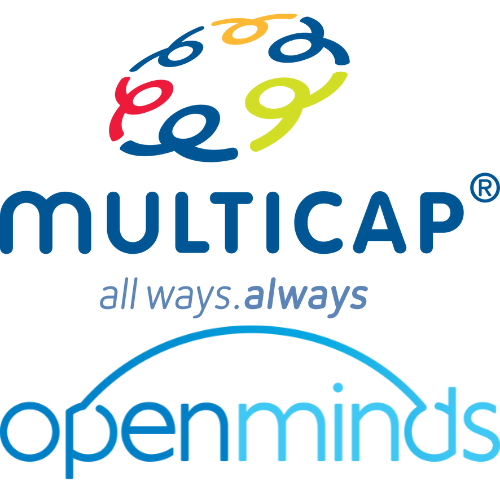
Sunday, 27 July 20252:55 - 4:10 PMHindley 2 |
Using Reinforcement Within the Workplace: Implementation of a Score Card System to Increase and Maintain Performance of Behaviour Technicians
Chiara Black, Hannah Kilpatrick, & Hayley Coles
Pathways Early Intervention Abstract: Behaviour technicians play a critical role in the delivery of high-quality, effective, and consistent behaviour analytic services. However, sustaining high levels of performance, engagement, and wellbeing over time can be challenging, especially in fast-paced clinical environments. While reinforcement-based strategies are widely used with clients, their application in staff performance management is less frequently embedded into routine systems. This project provides a description of the development of a score card system, outlining the key components that create a system individualised to the needs and values of the organisation, that is person-centred, and can be feasibly implemented with the resources available. The effectiveness of the score card system to increase and maintain key performance indicators among behaviour technicians, in an early intervention setting, is also evaluated. Preliminary analysis identified that staff maintenance of targeted performance behaviours remained consistently high (at 80% or above) following implementation of the score card system. Embedding reinforcement within staff performance systems offers the potential for a feasible and effective approach to supporting behaviour technician performance in behaviour analytic service delivery. Target Audience: Learning Objectives: BACB CE Instructor: |
Multielement Behaviour Support as an Effective Framework: Practitioner Report of Knowledge, Skills, Satisfaction, and OutcomesAlisha Banks, Rebecca L. Beights, Matthew Spicer, & Geoff Potter Centre for Positive Behaviour Support (CPBS) Presenter: Geoff Potter Abstract: Multielement behaviour support (MEBS) offers a comprehensive clinical framework that is person-centred and outcome-directed. MEBS upholds an analytical, conceptually systematic, and technological approach to positive behaviour support through a foundation in constructional behaviour analysis (Goldiamond, 1974; LaVigna & Willis, 2005). Within Australia, many behaviour support practitioners provide services without an evidence-based, clinical framework. Lack of guidance from a framework with a strong evidence base like MEBS means that practitioners are less confident and satisfied with their roles (Fisher et al., 2024; Hayward et al., 2023). More importantly, lack of an established framework like MEBS suggests that practitioners may be providing ineffective support that could negatively impact clients and public perception (Bosco et al, 2019; Fisher & Kelly, 2024; Stalford et al., 2024). This pilot study provides an evaluation of social validity and practitioner perspectives. Participants included (n = 9) practitioners with a variety of informal and formal (e.g., BCBA/CBA) credentials. Participants completed indirect measures prior to and following a transition to behaviour support aligned with the MEBS framework, inclusive of training and supervision. Results reveal improvement in confidence, role satisfaction, and prospective impressions of practice. Implications and recommendations regarding training and supervision will be discussed. Target Audience: Behaviour analysts, behaviour support practitioners, supervisors, administrators Learning Objectives: At the conclusion of this presentation, delegates will be able to:
|
Behaviour-Based Educational Design Boosts PBS Competencies: PBS Bootcamp Preliminary Results
Helder Gusso1,2 & Tracey Lawson1,3
1PBS Together; 2University of Technology Sydney; 3Monash University Abstract: Positive Behaviour Support (PBS) is playing a critical role in reducing restrictive practices and improving quality of life for people with disabilities in Australia. However, recent reports highlight challenges with PBS service quality. This study examines preliminary data from practitioners participating in "PBS Bootcamp", an educational initiative designed to enhance PBS competencies. The 8-month Bootcamp leverages a behaviour-based educational design. The program comprises: 14 self-paced courses released sequentially, featuring immersive case scenarios and immediate feedback; fortnightly live classes; monthly public supervision; expert-led webinars; and an online community. Data on satisfaction and performance from the first three months were analysed. Results from the first cohort (27 of 32 participants) showed consistently high satisfaction across self-paced courses (8.8), live classes (8.7), and supervision sessions (8.8). The combination of these components received an even higher rating (9.2), with 70% of practitioners giving it a maximum score (10). Applicability of the program to professional practice was rated highly (8.8), and practitioners recommended the Bootcamp to peers (9.4). Most participants offered no suggestions, though increased practical activities were recommended by 3 practitioners. Findings suggest that behaviour-based educational design can strengthen PBS skills, potentially enhancing service quality within the field. Target Audience: Learning designers, supervisors, service providers, PBS practitioners Learning Objectives: At the conclusion of this presentation, delegates will be able to:
|




.png)


